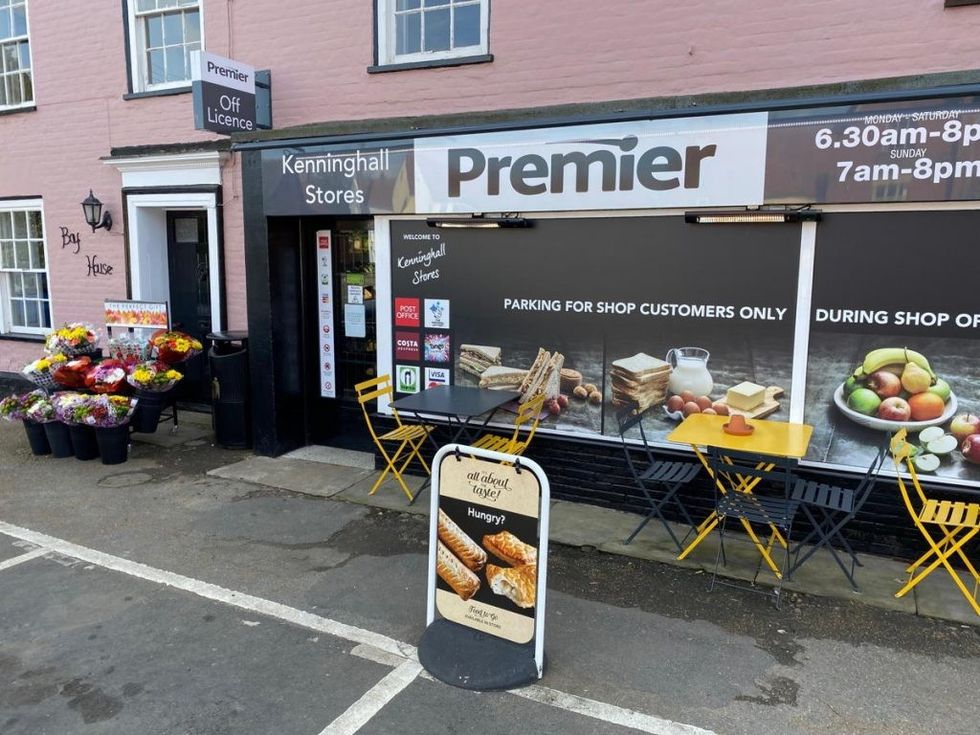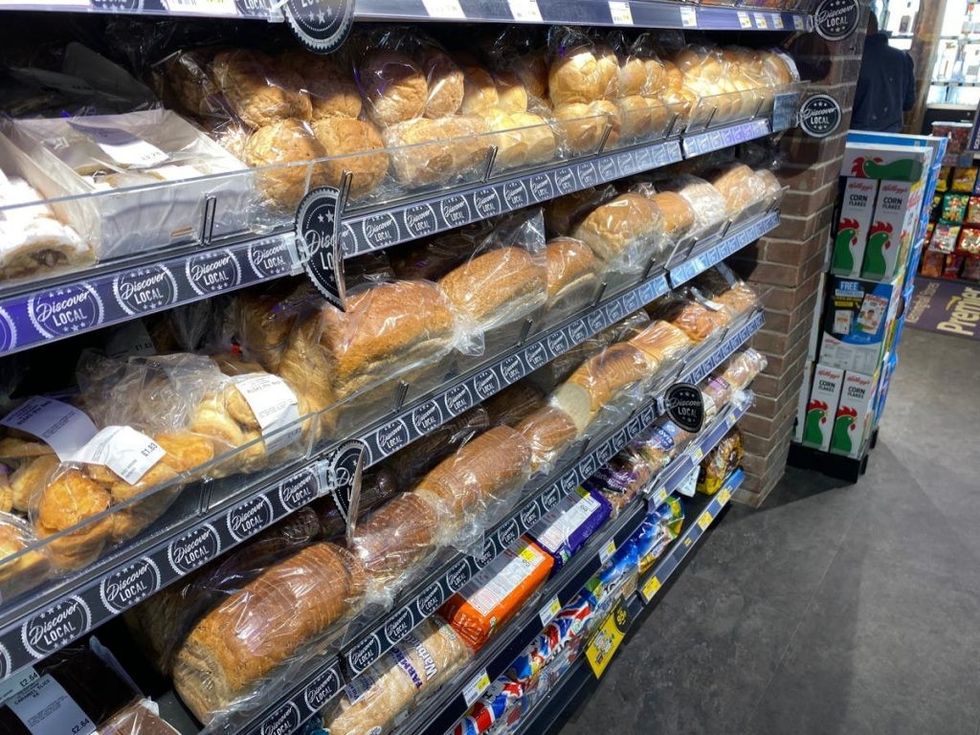Mike Humphreys, who runs Premier Kenninghall Stores and Post Office in Kenninghall, Norwich, is one veteran retailer who used an adverse situation as an opportunity to make the store better than it was before.
The winner of the Bakery Retailer of the Year accolade at the 2021 Asian Trader Awards, Mike has seen his store ending up in three feet deep in water after flash floods hit the market square in Kenninghall over the Christmas period in 2020, 23rd December to be precise.
“Devastating, absolutely devastating, when we had the flood,” he recollects. “At 8 o'clock that night I had a knock on the door. Ten minutes later, water started to the front room, and it started to come in the shop. And within half an hour, we got the three feet of water.”
He says the support from the staff and the village was very good, but he is not that enthusiastic when it comes to the insurance company. The cost of the floods was £350,000 and he submitted the insurance claim in 20 days, but it was six weeks later before he had confirmation the claim was accepted.
“Like any insurance company, the less they paid out, the happier we were, to be quite honest about it,” he comments with a chuckle.
But, he has to rebuild and his only priority to offer the best for his customers.
“I had to take some of it from my pocket. What I wanted to do was end up with the best shop I could for our customers, and that cost more than the insurance company was prepared to pay. We've now got a good shop, and that's the silver lining in the dark clouds of us closing three months,” he says.
They finally reopened on 31st May with a great looking shop with new equipment, exposed brick walls, an open, warehouse-style ceiling and neon-style lighting for each section of the store. When stripping back the walls Mike discovered that every wall and beam had around six inches of cladding and discovered an original beam from October 1801, a fireplace that is now part of the bakery offering and wonderful original brick walls, all now retained.
“The village was extremely pleased when we opened up and it took about three weeks for us to gain back our previous sales,” he says, adding that they are now trading well over 15 per cent over the pre-floods period.
However, when compared to the sales increase during the Covid-19 pandemic, he reveals that sales have not that been prolific now, as the situation gets better.
“We're still up on the year, but sales definitely leveled off. And I can see that continuing. I think it'll be a trend. Hopefully electricity prices and things like that won't continue to grow at the level they have, but still very positive to the future,” he says.
‘The only shop for four miles that does food and stuff’, they always a occupied a central place in the village, and yet, Mike feels that the pandemic helped change things for the better in their relations with the community, But more significantly, he thinks that the credit is also due to the retailers who rose to the occasion.
“I think some of that down to the retailer doing a good job while we've got that opportunity. So while we've had the opportunity to get those extra customers in, it's been really good that those customers appreciated it. And because we've done a good job for them, I think we've gained their loyalty,” he explains.
He adds that the customers were supportive of them during the trying times of the pandemic.
“When we went out of stock or stuff, our customers didn't mind, they understood the situation. If we had someone that was self isolating, we set up a system so we could deliver stock to them,” he says.
And, they delivered products to their customers even when the shop was closed for refit amid the third national lockdown, taking orders from them and delivering the products from his second store, which is around 15 miles away in Dickleburgh.
While many stores across the country have seen instances of abuse and even violence during the pandemic, often triggered by mask rules and other such measures, Mike had an opposite experience.
“We're quite lucky that we're in a small village. The old people got really upset if people weren't wearing masks. And they appreciate it when we only let five people in the shop at a time,” he explains.
“So we actually got a lot of probably good publicity about the fact that we're doing the social distancing, etc (when) we've reopened after the three months. So we got a lot of good rapport with our customers because of it, and they liked the deliveries.”
Fresh and local
Mike stocks lots of local products, and he says that also attracts customers to the store.
“I think the local is the thing that makes the difference between us and the supermarket. If we can stock local products that our customers want at a fair price, it's very difficult for big supermarkets to do the same thing,” he notes.
“I stock Binham Blue cheese (made by the Templeton family in Norwich), I stock local country pie. My local supermarket doesn't do that. If my customers want them, they come and see me. That is my point of difference between the large supermarkets and even the smaller mini Tescos and people like that.”
The store, in fact, is awash with local produce, including a fantastic cheese fixture with biscuits to match, local Strawberries and potatoes, local butchery, eggs, salmon, pies, and even Suffolk Chorizo!
“And we have Kenninghall cider,” Mike adds. “We have local jams from Emma, who's the local farmer's daughter. We have local cereals - it's a mixture of getting the right price and right product.”
The extent to which he goes to make a difference for his customers is evident in his gin range, which boasts 200 different gins, including six local ones!
“We do very well on wines and spirits,” he explains. “We stock some different wines from a company called Enotria (& Coe). They're slightly better quality and customers coming to buy them because they can't get them from elsewhere.”
Miniature bottles are another attraction, and they stock about 50 different drinks. “So if someone wants to try a gin, but they don't want to buy the whole, they'll buy a miniature, the 5cl ones, for £5, which is really worth the walk,” he says. “They can drive couple and then decide which one they liked without spending a large amount of money.”
The store also does their bit on the plastic front, selling vast majority of their fruit and veg loose. “We buy in from the local greengrocery merchant who goes down to London and buys it in these boxes. So we sell it loose to our customers. And they prefer it rather than lots of packaging,” he reveals.
His feedback ties in with a recent research conducted by environmental charity WRAP, which has raised questions on the accepted thinking that plastic packaging helps to preserve fresh uncut fruit and vegetables. WRAP now recommends retailers to sell loose where possible.
Coming to his award-winning category, the store tempts shoppers with a beguiling bakery offering. They have devoted 6.8m to bread and cakes, and bakes them two to three times a day to give great fresh products with that fantastic smell of in-store baking. A large range of locally produced fresh bread, rolls and cakes complement their offering.
“We have been in partnership for probably ten years with our local baker. So he's always baked lots of local bread and cakes for us, which has given us a good reputation,” Mike says. “And then after the flood when we reopened, we started baking our own rolls, fresh croissants and cake and we probably stock about 300 different types of springs and things.”
The bakery range is made up of 37 lines of local cakes, 23 of local bread, 12 lines of bread rolls and 10 cakes that are baked in store, together with a range of 50 different cakes from other suppliers. The in-store Bake Off includes white, brown, tiger, sourdough, old style, poppy and French sticks, demi baguettes and Parisian, fresh croissants, cakes, doughnuts and biscuits.
Mike thinks fresh and local would continue to be the key thing that convenience retailers should focus on.
“As long as we can give the customers fresh products at a reasonable price, not the cheapest, they'll continue to come back, whether that be fruit and veg, whether that be bakery, whether that be meat, or dairy products, and frozen foods (which) is a fantastic, growing category as well.”
Fewer PMPs please!
One of the things he would like is, interestingly, less price marked products! “Because with prices of electricity, wages, everything else going up, it means margins being squeezed. It'd be nice to have a little bit more freedom with margins,” he reasons, adding that rising prices is becoming a major challenge for retailers, and being able to maintain margins at present means staying in business.
He agrees that some people will always shop the lower end due to the amount of money they've got to spend, and it's good to offer products at that end. But, he suggests retailers need to focus on providing customers “what they want, which is good value.”
“I think it is about quality and price, if the quality of the lower priced product is good, it sells well,” he says.
He adds that customer preferences – “what they've been asking, or what can I give them that I haven't given them before” – should always be the top priority for retailers, especially when they plan to invest in stores. And, saving money on energy should be the next.
“Because I think from a retailer's point of view, one of the biggest costs these days is energy. My energy bill has gone up over twofold in the last six months, from £13000 to nearly £30,000,” he says.
Mike has been in retail for nearly four decades, starting at Tesco at the age 17. In 2011, he had the opportunity to buy a shop that was quite rundown at the time, and never looked back.
“I really enjoyed working for ourselves, myself and my wife, Karen. And it's been good fun. It's something that I would never regret,” he says.
They have got two shops, and the husband and wife team oversee both shops, with a manager looks after each one.
“Marian Sommers runs my Kenninghall shop. [She] is a very good manager and works very hard. It’s because of our hard work that we get the sales we do, we have the customers we do and we have the staff we do,” he is all praise for Marian.
His immediate priority now is to consolidate the gains after the refit. “To make sure that we've right customers who were brought in by good service, good products and good prices wherever possible,” he says.
Or in short, “just continue doing what we are doing better.”











